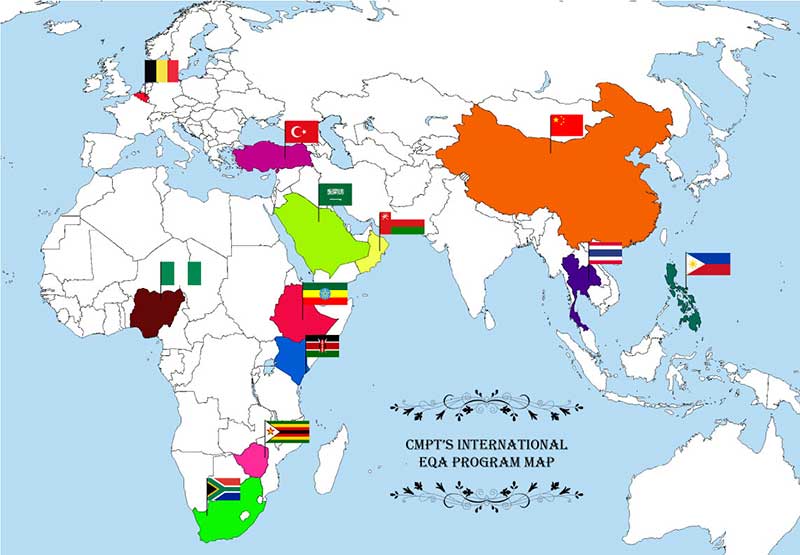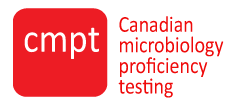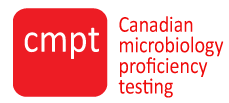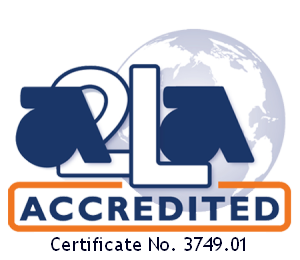In 1996 (now 23 years ago!) CMPT received a request from the Thailand Department of Medical Science to assist in the development of a proficiency testing program for drinking water testing laboratories. At that time, two officials from Bangkok visited CMPT for two weeks during which we showed them how to make and distribute samples and gave them some basic guiding in informatics management.

Figure 1. Dr. Jean Frederic Flandin (first left) with the Ethiopian team
We have long since lost contact with the group, which is a shame as it would be both interesting and relevant for us to know if their experience here in Vancouver had any long-standing results.
With that experience in hand, CMPT has repeated the training with a several countries including China, Zimbabwe, South Africa, United Arab Emirates, Turkey, Belgium, Kenya and others, inviting people to visit CMPT and UBC to learn hands on how to make samples.
It is fair to say that we have had more successes than failures, but the problems that we observed with the different teams were usually the same. While we see our laboratory as “just” CMPT, it is in fact equipped with well adapted instruments and procedures, and has a very sophisticated laboratory quality management system. This doesn’t necessarily reflect the visiting laboratories’ situation.
So working with Oneworld Accuracy (1WA), another international EQA program headquartered in Vancouver, we came up with another idea. Rather than having laboratories send delegates here, we would reverse the process so that we would help them set up an EQA laboratory in their own country, with the resources available to them.
In the last months, we have tried this approach in two African countries: Nigeria and Ethiopia, two countries in Africa with the greatest population.
We reported about our trip to Nigeria in the last issue of our newsletter Connections.
Our most recent training (April 2019) was in the Ethiopian Public Health Institute (EPHI) in Addis Ababa. EPHI has been established in a former Pasteur Institute facility that is about 100 years old, but has been modernized and is indeed a very comfortable, modern, well equipped and has a very well serviced laboratory that serves as the National Microbiology Reference Laboratory (including genomics and tuberculosis), and as the Center for Proficiency Testing.
The collaboration with 1WA came together really nicely with CMPT being responsible for helping them with technical skills and 1WA for helping them with the reporting as 1WA has a very sophisticated informatics system already in use in Ethiopia.
Together with Dr. Jean Frederic Flandin form 1WA we were able to provide a solid foundation in EQA sample production making. In barely 5 days they were able to learn the principles and acquire experience in making simulated samples for urine, wound swabs, sputum, feces, and Gram stains, and they were able to develop a sound grasp of quality control, standard operating procedures, homogeneity, and stability studies.
Pretty good for a week!
There is still lots of work to do, but from our combined experience, it was pretty clear that with the right conditions, a good laboratory, and able staff with a sense of commitment, on-site training can be an excellent opportunity for training.
We look forward to continuing on working with 1WA in this new form of support and provision for laboratory quality in developing countries.

Figure 2. CMPT’s International EQA Training Program
CMPT has been involved in EQA International training in Belgium. Nigeria, South Africa, Zimbabwe, Kenya, Ethiopia, South Arabia, Oman, Turkey, China, Thailand, and the Philippines.



